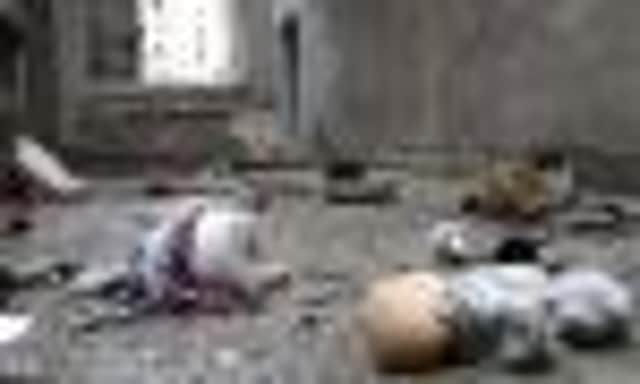Assad now using Scud-type missiles against Syrian rebels, Nato reveals


“Allied intelligence, surveillance and reconnaissance assets have detected the launch of a number of unguided, short-range ballistic missiles inside Syria this week… Trajectory and distance travelled indicate they were Scud-type missiles,” an official of the western alliance said.
US officials added that the missiles had been fired from the Damascus area at targets in northern Syria.
Advertisement
Hide AdAdvertisement
Hide Ad“The total number is probably north of six now,” one said, adding that the targets were in areas controlled by the Free Syrian Army, the main armed insurgent group in a 20-month uprising in which upward of 40,000 people have been killed.
“Using Scuds to target tanks or military bases is one thing,” the official said. “Using them to target rebels hiding in playgrounds at schools is something else.”
Scuds are Soviet surface-to-surface missiles, with a range of up to 350 miles. They were used by Iraqi dictator Saddam Hussein in the first Gulf war and are capable of being fitted with chemical or biological warheads.
Meanwhile, more than 100 countries yesterday recognised the new Syrian opposition coalition, further isolating the regime and opening the way for greater humanitarian assistance to the forces battling president Mr Assad.
Meeting in the Moroccan city of Marrakech as rebels battled Mr Assad’s troops on the outskirts of Damascus the “Friends of Syria” group called on the president to step aside.
But tensions between the United States and the Syrian opposition coalition surfaced when its leader criticised Washington’s designation of the Islamist Jabhat al-Nusra rebel brigade as a terrorist organisation.
Hours earlier, US president Barack Obama announced Washington would recognise the coalition of opposition groups, led by Sunni Muslim cleric Mouaz al-Khatib, as Syria’s legitimate representative, joining France, the UK, Turkey and Gulf states.
“Participants acknowledge the National Coalition as the legitimate representative of the Syrian people and the umbrella organisation under which the Syrian opposition are gathering,” said the Marrakech declaration after a meeting attended by 130 ministers and officials.
Advertisement
Hide AdAdvertisement
Hide AdThe gathering brought together western and Arab nations opposed to Mr Assad, whose family has ruled Syria for 42 years.
But it excluded Russia, China and Iran, which have backed Mr Assad or blocked efforts to tighten international pressure on him.
“Bashar al-Assad has lost legitimacy and should stand aside to allow a sustainable political transition,” said the text.
Qatar reinforced that message after the meeting, urging Mr Assad to take the “brave decision” to step down, while Britain called on him to end a war it said he could not win.
Referring to western reports suggesting Mr Assad might use chemical and biological weapons, the text said “any use of chemical weapons in Syria would be abhorrent and that this would draw a serious response from the international community”.
Participants announced the creation of a relief fund “to support the Syrian people”, calling on states and organisations to make contributions to the fund.